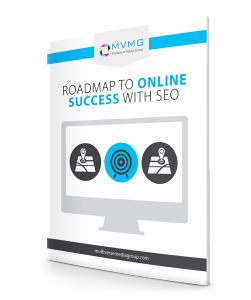Last Updated on October 23, 2017 by
Local SEO for Small Business: An Insider’s Guide
SEO, or Search Engine Optimization, should already be at the tip of your tongue if you’re any kind of business owner. You should already know why it’s important in this digital age and why you shouldn’t be running a business without it. We’ll cover SEO basics as a refresher in just a moment, but first understand that it’s not as easy as you think to get noticed on the Internet. A web page can provide useful information in an interactive and engrossing way, yet still attract few visitors. One of the most reliable ways to improve traffic to a site is to achieve a high ranking on Search Engine Results Pages (SERPs).
While most search engine marketing entities attempt to keep their processes under wraps, their criteria for top spots on SERPs isn’t a total mystery. Search engines are successful only if they provide a user links to the best websites related to the user’s search terms – for example, if a site proclaims to be the best skydiving resource on the Internet, it benefits search engines to list the site high up on their SERPs. The key here is finding a way to “coerce” search engines into “seeing” that your particular site belongs at the top of the heap. And this is where SEO comes in.
 What is SEO & How does it Work?
What is SEO & How does it Work?
Search Engine Optimization at its purest is a collection of techniques a webmaster can use to improve a website’s SERP position. Experts in SEO tactics, such as Florida’s Multiverse Media Group, can analyze the steps needed to shoot a business to one of the top entries on a SERP, beginning with excellent, engaging content. We can tell you that without powerful website content, SEO tips and tricks will provide a mere temporary boost in your site’s ranking – at best.
More and more large companies are willing to spend money on SEO consultants, as they can definitely be a worthy investment if the company’s site is ranked higher than those of their competitors. But the SEO for small business approach has proven very useful for less complex businesses as well for many of the same reasons; at their core, SEO techniques rely on how search engines work. Some are legitimate methods that prove to be an ideal way to let search engines know your web page exists, while others aren’t good ways to get noticed and might actually involve exploiting a search engine so that it gives the page a higher ranking. Sometimes it is difficult to tell if an approach is legitimate; if it seems even a little questionable, it’s probably a bad idea. This is why we always recommend going with a professional company like Multiverse when planning your online marketing strategy.
Search Engine Optimization has been defined as the process of affecting the visibility of a website or web page in a search engine’s “natural” or “un-paid” (i.e. “organic”) search results. As we have discussed many times in the past, the earlier – or higher-ranked on the search results page – and more frequently a site appears in the search results list, the more visitors it should receive from the search engine’s users, generally speaking. Further, SEO may target different types of search parameters such as image search, local search, video search, academic search, news search and industry-specific vertical search engines.
As a formidable Internet marketing strategy, SEO, as mentioned above, considers how search engines work, what people search for, the actual search terms or keywords entered into search engines and which engines are preferred by their targeted audience. Optimizing a website, something Multiverse Media Group knows a thing or two about, involves editing its content, HTML and associated coding to both increase its relevance to specific keywords and to remove barriers to the indexing activities of search engines. Another powerful SEO tactic involves promoting a site to increase the number of back-links, or inbound links.
 Local SEO for Small Business:
Local SEO for Small Business:
Why SEO is Important for Local Companies Looking to Target Their Local Area
If you are a business owner with a physical address and location, chances are you’ve already been told you need local SEO for small business. But why is this notion so shrouded in mystery? Why don’t more business owners know what this entails? And finally, what do you, as a business owner, need to do…and why do you need it?
If your run a small local-oriented business, you need to formulate a resource for local SEO which should include a plan of action you can immediately execute. As you formulate this plan, take into consideration the following:
1. What Types of Businesses Need Local SEO?
Any business that receives some or all of its customer traffic via local channels should consider local SEO. This could be anything from a local restaurant or retail outlet to a doctor’s office, dentist practice or lawyer…and could just as easily be a local ad agency. The bottom line is that if your business boasts a physical address in a city and you want people to visit, you should be looking into local SEO for that location.
2. How is Local SEO Different From Nationally-Oriented SEO?
While all of the elements that apply to national SEO tactics also impact local Search Engine Optimization – indexing, social media, links, on-page factors, et al – it is the local variety that comes with several unique elements. The first and undoubtedly most important one is that local SEO requires you create and claim a local profile on Google (and other platforms, as desired); your local listing is what will normally show for localized search results.
Secondly, you must take into consideration citation – any online portal that uses your company NAP (name, address, phone number) all on the same page, in the same format as your local listing, is considered citation. And while Google can be considered “smart” in many ways, it’s best to make sure that your local citation efforts match your local listing as closely as possible. Important to note here is that you shouldn’t abbreviate in one and not the other (for example, “St” versus “Street,” “800” versus “1-800” etc.).
3. What Does the Location of a Business Have to do With Anything?
Utilizing an approach known as “centroid bias,” sites such as Google will implement a bias towards locations that are closest to the center of a city. While it is possible for a business in a neighboring city to rank for a metro keyword (for example, a business in Cambridge trying to rank for a Boston keyword), you’re going to be at a disadvantage if your business resides on the outskirts of a city or in a city neighboring a major metropolitan area.
4. What are the Most Important Signals That Boost Local SEO Rankings?
The three biggest factors in local listings are the number of citations, the number of reviews (primarily on your Google Places listing – though other portals do count here) and how positive the reviews are overall. From what we have seen after years practicing in the SEO sector, positive reviews will trump citations, so persuading your customers and clients to leave great reviews on your Google local page is one of the single most vital pieces of advice we can give. Now, of course, there are some things that have a major impact and that you may not have direct control over, such as the close proximity of your business to the city center.
Local SEO: An Ongoing Endeavor, or a Set-and-Forget Expense?
While there is an upfront set-up cost to local Search Engine Optimization techniques, there is, without doubt, an ongoing component. Follow our advice and you should be getting new citations, reviews, social mentions and links each and every month.
 Want to learn even more about SEO?
Want to learn even more about SEO?
Download our FREE eBook, “Roadmap to Online Success with SEO”!
This guide will teach your all of the basics you need to know to start or improve your online presence using modern and safe search engine optimization techniques.
 Local SEO for Small Business:
Local SEO for Small Business: 
